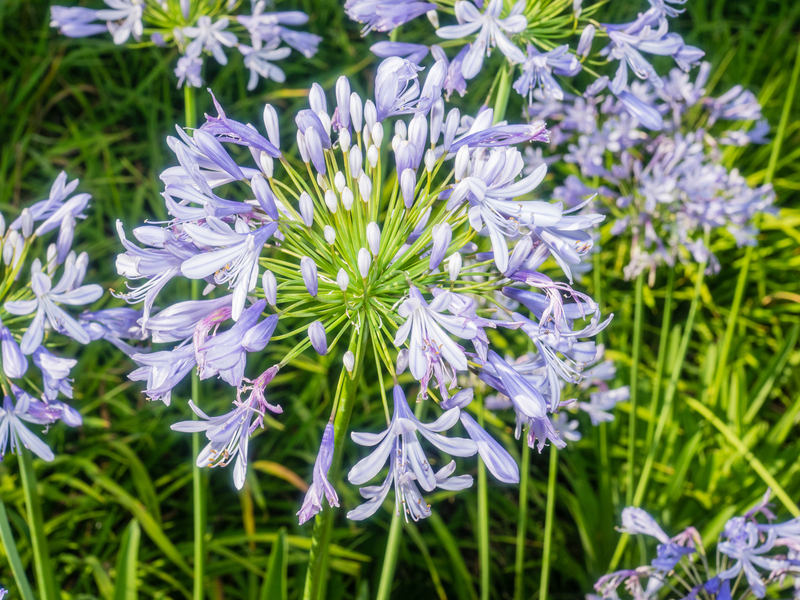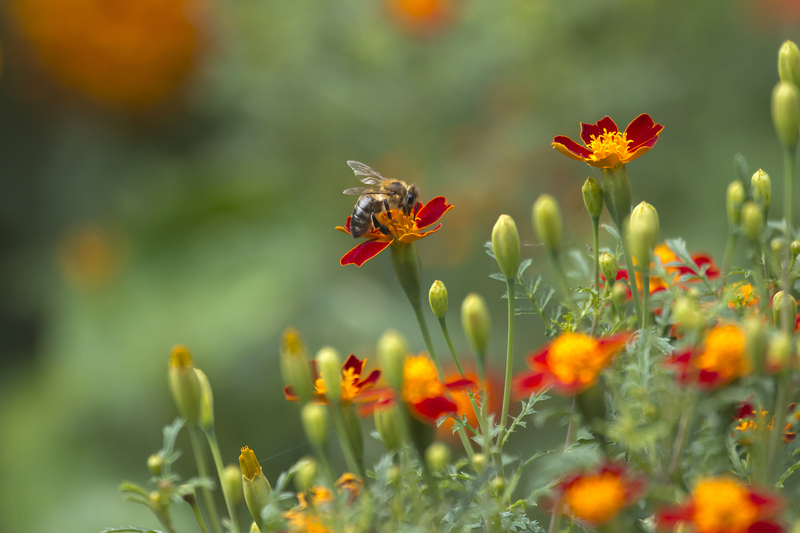How cultivating a garden can contribute to a cooler planet
Posted on 17/09/2025
How Cultivating a Garden Can Contribute to a Cooler Planet
Discover how your green space can be a powerful tool in fighting climate change and promoting environmental sustainability.
Introduction: The Power of Green Spaces
Whether you have a sprawling backyard, a city balcony, or a community plot, gardening can be one of the most rewarding steps you take toward a more sustainable planet. In the face of escalating global warming and climate instability, cultivating a garden is an actionable, nature-based solution that individuals and communities can adopt. Let's explore how growing a garden helps cool the Earth and makes meaningful environmental impact.

The Science Behind Gardens and Climate Regulation
To understand how gardening cools the planet, it's crucial to grasp how plants, soil, and biodiversity interact with atmospheric processes.
1. Plants as Earth's Cooling System
- Photosynthesis: Plants absorb carbon dioxide (CO2) and release oxygen, directly reducing greenhouse gases.
- Transpiration: Through this process, plants release water vapor, which cools the air similarly to natural air conditioning.
- Shade Creation: Well-placed trees and shrubs shield surfaces from the sun, reducing urban heat island effects.
2. Soil Health and Carbon Sequestration
Healthy, living soil acts as a natural carbon sink, drawing carbon away from the atmosphere and storing it underground. Composting at home further enriches soil and minimizes methane emissions from landfill waste.
3. Biodiversity Boost and Climate Resilience
Gardens foster diverse plant and animal life, enhancing ecosystem resilience and stabilizing local microclimates. Pollinator-friendly gardens also support vital insects, such as bees, that are crucial for food systems and ecosystem balance.
How Home Gardens Help Cool the Climate
From urban gardening to community gardens and even container planting, every green effort makes a tangible difference. Below are the main ways in which cultivating a garden can contribute to a cooler climate.
Reducing Urban Heat Islands
Urban areas are notorious for higher temperatures due to concrete, asphalt, and a lack of vegetation, a phenomenon known as the urban heat island effect. Increasing green cover through rooftop gardens, vertical gardens, and tree planting can lower daytime temperatures, reduce the need for air conditioning, and make cities more livable.
- Green Roofs: Rooftop gardens insulate buildings and reduce energy consumption for cooling.
- Vertical Gardens: Green walls act as thermal regulators and add visual appeal in urban landscapes.
- Community Gardens: Shared green spaces promote social engagement and collective environmental responsibility.
Absorbing Climate-Warming Carbon Dioxide
Growing plants in your garden pulls carbon dioxide from the air--the main driver of global warming. Trees, shrubs, and even vegetable plants store carbon in their stems, leaves, and roots as they grow.
- Long-lived plants, such as trees and shrubs, are especially effective at removing and storing carbon from the atmosphere.
- Ground covers and grasses help stabilize soil and prevent erosion, keeping carbon locked in place.
Conserving Water Through Smart Gardening
Strategic gardening practices can conserve precious freshwater resources and help manage rainfall. Xeriscaping, mulching, rain gardens, and native plantings all enhance soil moisture and reduce runoff.
- Mulching: Mulch keeps the ground cooler, reduces evaporation, and suppresses weeds.
- Rain Gardens: Designed to capture and filter stormwater, rain gardens reduce pressure on local drainage systems while replenishing groundwater.
- Native Plants: Indigenous species require less irrigation and are adapted to local climates, supporting wildlife and reducing garden maintenance.
Eco-Friendly Gardening Practices for a Cooler Earth
Your approach to gardening also matters! By using climate-smart strategies, you can maximize your garden's positive climate impact.
- Go Organic: Avoid synthetic fertilizers and pesticides, which contribute to greenhouse gas emissions and harm soil organisms.
- Compost Food and Garden Waste: Composting reduces methane emissions from landfills and enriches soil with organic matter.
- Plant a Diversity of Species: A variety of flowers, vegetables, and herbs creates a resilient, balanced ecosystem that can better withstand extreme weather.
- Encourage Perennials: Perennial plants need less replanting and provide year-round carbon sequestration benefits.
- Harvest Rainwater: Collecting and using rainwater for irrigation conserves potable water and reduces runoff.
- Reduce Lawn Size: Lawns require frequent mowing and watering. Replace portions of turfgrass with native plant beds, wildflower meadows, or edible gardens.
Why Native and Drought-Resistant Plants Matter
Planting species adapted to your region's climate reduces resource consumption and supports pollinators. These climate-resilient plants often need less water, fertilizer, and maintenance, which translates into fewer emissions from garden equipment and inputs.
Enhancing Urban Biodiversity
Urban gardens create corridors and habitats for birds, bees, butterflies, and small mammals, buffering them against habitat loss and fragmentation. Urban biodiversity increases ecosystem resilience and improves city air quality.
Gardens as Living Classrooms for Climate Action
Beyond their practical benefits, gardens serve as powerful educational spaces. Whether in schools, community parks, or private yards, gardens can inspire environmental stewardship, promote climate literacy, and foster a connection to the natural world. By seeing firsthand how plants grow, store carbon, and provide for pollinators, individuals of all ages become more invested in protecting the environment and adopting sustainable habits.
Community Engagement and Empowerment
Community gardens not only cool your local environment but also build social ties, empower residents to make greener choices, and encourage collective climate action. Sharing resources, seeds, and knowledge creates a ripple effect, amplifying the climate benefits of gardening across entire neighborhoods.
Health and Well-being Benefits
Time in the garden is shown to lower stress, improve mood, and increase physical activity. Cooler, greener urban spaces also reduce heat-related illnesses and improve air quality, delivering public health benefits that go hand in hand with improved climate conditions.
Conclusion: Your Garden's Role in a Cooler Planet
As we face the challenges of climate change, it's essential to recognize that cultivating a garden goes far beyond personal pleasure. Each plot, planter, or window box represents a microcosm of hope--a practical step toward restoring planetary balance, reducing urban temperatures, sequestering carbon, and nurturing resilient ecosystems.
Your garden is a powerful climate solution in your own backyard, balcony, or community lot. Start cultivating today--for a greener, cooler, and more sustainable planet tomorrow.

Frequently Asked Questions: How Cultivating a Garden Helps Cool the Planet
What are the best plants for maximizing the climate-cooling benefits of my garden?
Native trees and shrubs are the top choices for carbon sequestration and providing habitat for wildlife. Ground covers and perennial flowers are excellent for reducing soil temperatures and creating a resilient ecosystem.
Can small gardens or balcony planters really make a difference?
Yes! While the impact of individual small gardens may seem modest, collectively they contribute to lowering urban temperatures, absorbing carbon dioxide, and supporting pollinators. Every green effort counts.
How can I make my garden more eco-friendly?
Focus on organic gardening, minimize lawn space, use mulch, compost organic waste, plant a diversity of species (especially natives), and conserve water with rain barrels or drip irrigation.
Do gardens help reduce air pollution?
Yes. Plants naturally filter particulates, dust, and pollutants from the air, improving local air quality and helping to mitigate the effects of urban pollution.
Start Cultivating a Cooler World--One Garden at a Time
By embracing eco-friendly gardening, you join a global community working to create a livable, thriving planet. Let your garden be your contribution to a cooler, healthier, and more beautiful Earth.
Latest Posts
Craft a Beautiful Garden with 5 Budget-Friendly Low Maintenance Strategies
Equip Your Garden Shed with These Crucial Tools
Transforming Yards into Canine-Friendly Gardens

